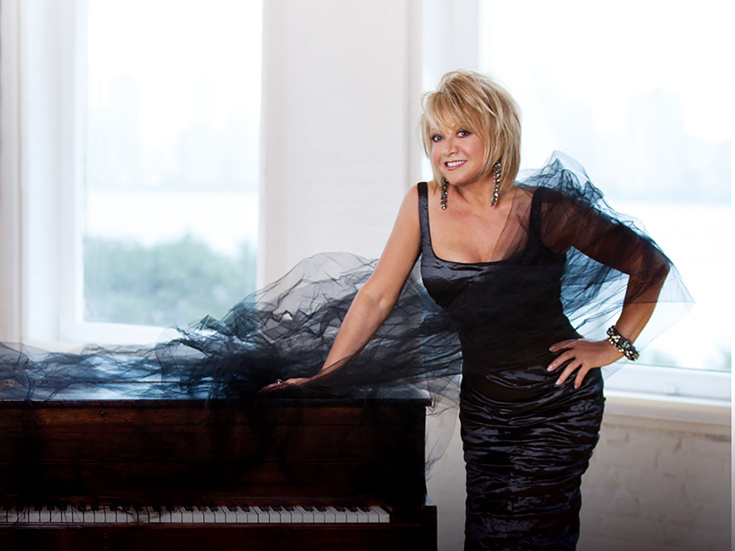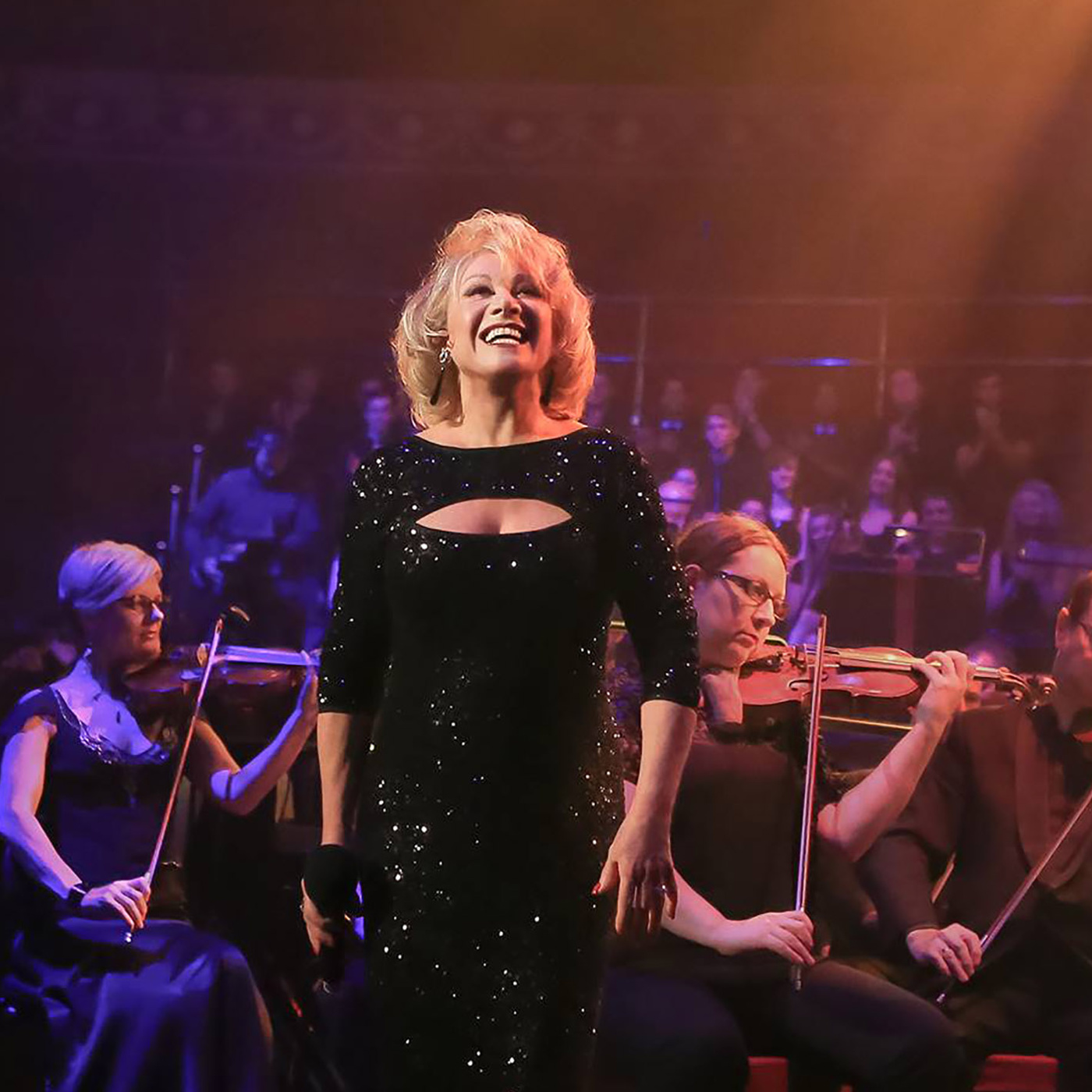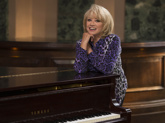More Elaine Paige! The English Musical Theater Legend Weighs In on the Upcoming Cats Movie and More

(Photo: Eva Mueller)
In the first part of our chat with the ever-vital Elaine Paige, the English musical theater legend spoke about making the shift into radio (with her BBC Radio 2 program Elaine Paige on Sunday) and the excitement that has accompanied this unexpected second career. She named a few favorite guests alongside ones that have (so far) got away, and she articulated with characteristic candor what it is like to see revivals of shows, like Evita, that she helped create. Part two extends the conversation to include her work on Broadway and, of late, TV; what it would take for her to return to the theater; how it feels when beloved colleagues and collaborators are no more; and her thoughts on the forthcoming movie version of Cats.
We’ve spoken about your thoughts on seeing an iconic title from your past, like Evita, refreshed for a new generation onstage, but how do you feel about, say, Tom Hooper’s forthcoming film version of Cats? [Paige was the West End’s first Grizabella in the Andrew Lloyd Webber musical phenomenon.]
Well, I’ve only seen the trailer, which is what most other people have seen and which wasn’t received well on social media anyway, which I think is unfair. It’s difficult to say much more about the film without seeing the whole thing. What is going to be interesting will be to see how they mix the realistic art form of film with something that is betwixt and between animation and cartoon: I’m not quite sure how it’s going work but I think it would be unfair at this point to have anything serious to say about it.
Is it worth pointing out that you in fact starred in a previous film of Cats [a direct-to-video project in 1998]?
That’s right! A good 15 years after the show opened in London, a movie was indeed filmed, and I was part of it, I’m glad to say. But, of course, it was filmed in a theater on a set and so was contained in the way that the show would have been were you seeing it in a theater, even thought it was cut together the way a movie would be. I think it worked really rather well as that film, but what’s coming up is very different.
As someone who hasn’t performed in a show for a while, do you ever yearn to get back onstage—when, for instance, you are watching a show you perhaps wish you were in?
It’s a double-edged sword, really. When I go to the theater, half of me sits there going, “I wish I was still doing this,” and I get a pang of reminiscence. My life has been the theater for as long as I can remember so there is often a pang of wishing I was still there.
But do you also feel the opposite?
Of course, once reality hits and I sit there and am absolutely astonished and amazed at the young talent that there is now in the musical theater—theater in general but musical theater in particular. When I see hitting me full force the energy that is required, along with the fantastic characterizations from these young people, I think, “Well, of course I can’t possibly do it anymore.” It’s a young person’s game: you’ve got to have nerves of steel and energy-plus.
Is that a difficult conversation to have with yourself?
Yes, insofar as one has to remind oneself that it was a wonderful, wonderful life as it goes, but the possibility of ever doing that kind of thing again is probably nil. Having said that, I never say never in my life, and the R word [retirement] hasn’t come into anything yet at the moment. I do still perform in concert all over the world, I’ve got my radio show, and I’m enjoying doing some drama for TV here. What I’m not doing is that eight-show-a-week thing, which does curtail one’s life, so I suppose you could say that my life now is much more balanced.

TV? Tell us more!
It’s a TV series called Life written by the playwright Mike Bartlett, who wrote [the TV series] Doctor Foster [as well as the London and Broadway hit drama, King Charles III.] I’m finding my acting roots again but on TV which I find very fulfilling, I have to say. I’m playing a doctor and I do not sing a note.
Is it a relief not to have to be testing and gauging your voice every day, as performers have to do when they are in a musical?
Very much so. When I was in musical theater, I would wake up and attempt a scale or two to see whether I was in good voice or not, and it was a terrible responsibility. Now all I have to worry about is knowing my lines, which is a different thing altogether. It’s only reminded me that musical theater is the hardest of all disciplines in entertainment.
When you’re feeling reflective, do you ever look yourself up on YouTube?
[Laughs] No way! I can’t think of anything more ghastly! Sometimes, when you’re looking something up for reference, you see yourself pop up but usually my immediate reaction is to think, “Oh my God!” I usually hate it and then I become thoroughly depressed and think, “Oh I was so young,” and then you start on that downward stretch. So, I don’t do it with myself but I do it with other people I know and love and admire. I find it interesting to do—but just not of me.
How do you feel when you hear “Memory,” which you originated in 1981 only for the Cats showstopper to become a musical theater standard-bearer that has entered he zeitgeist?
When I did it, I had four days rehearsal before I was onstage and singing a different lyric for 10 days or so because there were many versions before it became what it now is, which was the lyric taken from the T.S. Eliot poem “Rhapsody on a Windy Night.” Mostly what I hear nowadays are wonderful renditions, but it’s not an easy song to sing.
In what respect?
It’s got a huge range, and you need a lot of expertise to pull that off. It’s got these low echelons and then you’ve got “touch me” two octaves up, and what I sometimes don’t get from other performances are the emotions. But, you know, if you haven’t had the back story and you don’t understand what it’s about within the musical itself, [the song] can be difficult because some of it is quite obscure: like a poem, it’s about images rather than anything factual.
Do you ever wish you had appeared more often on Broadway?
Would I like to have done more there? Yes, I would love to have taken Evita and Chess to Broadway but in those days the Equity union rules were very different to how they are now, so that stood in my way, unfortunately. But I did get my chance how many years down the line with Sunset Boulevard, and I will never forget it. Andrew [Lloyd Webber] called me up and said that Betty [Buckley] had been rushed into hospital with an appendectomy and would I cover the role for six weeks over the Christmas period.
Did the experience live up to expectation?
I will never forget the first night descending that famous staircase [of Norma Desmond’s Hollywood manse]. There was a certain step where I had to stop and speak the first line, and as I came down the staircase, the applause began and when I arrived at that step, it didn’t diminish but increased and went on and on and I hadn’t done anything yet. I suddenly was filled with absolute horror as to how shall I begin, so I opened my mouth and took a large intake of breath hoping my mic would be on and they would hear it and I delivered the line, “Why are you so late?” There was a silence as I said the line which had special meaning for me, maybe because I had waited all those years to appear on Broadway.
Have you felt a similar response in your New York appearances since?
Well, to work with Stephen Sondheim eventually on Follies was just mindbogglingly fantastic: to be able to investigate character with someone of his intellect. I feel very loved when I come to New York, which is a very nice feeling, indeed.
Speaking of Broadway, do you ever get together with Patti LuPone on either side of the Atlantic to gossip or trade notes?
I don’t really see her on friendship terms, but I saw her [last season] in Company and loved her performance. It’s one of the best things I’ve seen her do. She’s got a wonderful way of spitting out those words and I heard every word, as well; she was perfectly cast in that role. But as I sat there, I was exhausted for her by the end of it knowing that you’ve got to give everything you’ve got and at this age, I know she has been muttering, “This is the last [musical]”, and I’m not surprised: one knows what’s required to play these major roles.
Whom do you see when you go to New York?
It’s usually old friends I’ve worked with and I’ve never worked with Patti, I’ve only seen her from afar. I find myself hanging out with my pals Ron Raines and Bernadette Peters, whom I know from Follies, and Howard McGillin, with whom I did Anything Goes here in London. These are the people I’ve known over the years, and it’s always lovely if I can meet up with them again.
Is that joy sometimes tempered by the losses that accompany the passing of time—Hal Prince, for instance, who directed you as Eva Peron, or Gillian Lynne, your choreographer on Cats?
Absolutely, that’s very difficult. When you work in the theater, you often cut to the chase in terms of relationships because you don’t have time to mess about; you’ve got to get down to the nitty-gritty quick, so there tends to be a lot of trust involved on both sides. That can make it sad and awful when the great giants of the theater leave us as you’ve just mentioned. It sort of reminds one of one’s own mortality God forbid, but that’s life. None of us is going to be here forever, and what's nice is that I am able to pay tribute to these people on my shows: they were giants of the theater and are much missed.
Do you feel a further book in you? [Paige published a memoir, appropriately entitled Memories, in 2008.]
Of course, there’s more to say, but do I want to say it? I’m sort of thinking about it and have started making notes. But to be honest that’s as far as I’ve gotten, so I don’t know: I feel as if I’m too busy still living life to be contemplating and reflecting on my past.
Isn’t that a wonderful place in life to be?
You know, it really is. All my friends say, “I don’t know where you get your energy from; you’re out there full force.” I feel as if at the moment, there’s more than enough going on. I’m firing on all four batteries, as they say, and that is good.
